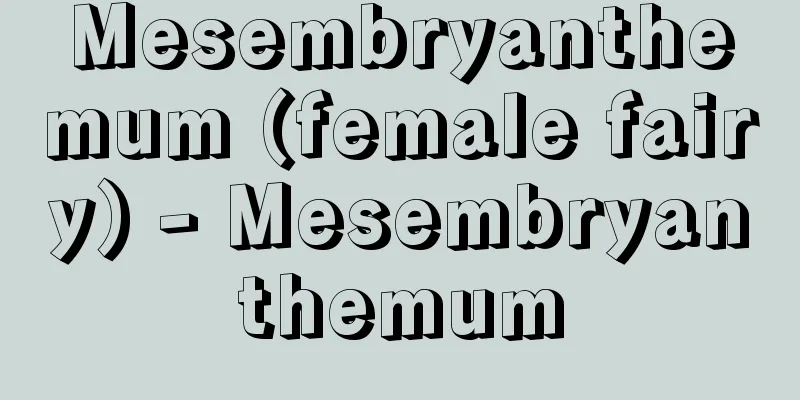Integral - Sekibun

|
[Noun] (Suru) 1. For a given function, all functions that can be differentiated to give the given function. Also, to find them. Indefinite integral. 2. Dividing the area between a curve represented by a function and the x -axis into fixed intervals and finding the limit value of that area. This limit value is also called the definite integral. In this case, the area above the x- axis is defined as positive, and the area below as negative. If F ( x ) is the indefinite integral of a function that becomes f ( x ) when differentiated, that is, f ( x ), then it can be related using the integral symbol ∫ as F ( x ) = ∫ f ( x ) dx . The value F of the definite integral in the interval [ a , b ] can be obtained by substituting the values of x = a , b into the function F ( x ) and taking the difference. In other words, it can be found as F = F ( b ) - F ( a ). [Additional Note] The relationship between integration and differentiation as inverse operations is called the Fundamental Theorem of Calculus, which was derived independently by Newton and Leibniz in the late 17th century and eventually developed into a major field of mathematics called analysis. If we have a function that represents the change in a quantity that characterizes a certain phenomenon, and if we can obtain the integrated function of that function, we can predict the phenomenon that may occur as a result of the accumulation of changes, or estimate the quantity. In this way, integration, along with differentiation, has become an important method for mathematically describing various phenomena in modern times. Source: About Shogakukan Digital Daijisen Information | Legend |
|
[名](スル) 1 与えられた関数について、微分してこの関数になるすべての関数。また、それを求めること。不定積分。 2 ある関数で表される曲線とx座標軸に挟まれた部分を、一定区間に区切ってその面積を極限値として求めること。またその極限値を定積分という。このとき、x軸より上部の面積を正、下部を負として定義する。微分してf(x)になる関数、すなわちf(x)の不定積分をF(x)とすると、積分記号∫を用いて、F(x)=∫f(x)dxと関係づけられる。区間[a,b]における定積分の値Fは、関数F(x)にx=a、bの値を代入して、その差をとることで得られる。すなわちF=F(b)-F(a)で求められる。 [補説]これら積分と微分が互いに逆の演算であるという関係性は微分積分学の基本定理とよばれ、17世紀後半にニュートンとライプニッツによって独立して導かれ、やがて解析学という数学の一大分野に発展した。ある現象を特徴づける数量の変化を表す関数があり、それを積分した関数が得られれば、変化の積み重ねによって起こりうる現象を予測したり、数量を見積もったりすることができる。このように、積分は微分とともに、現代においてさまざまな現象を数学的に記述するための重要な手法となっている。 出典 小学館デジタル大辞泉について 情報 | 凡例 |
Recommend
Treasure mountain
Sake from Niigata. The sake is named after Mt. Tah...
gag
(noun) (gag) An improvised and humorous (although ...
Hentaigana - Hentai-gana
Among hiragana characters, those that are not com...
Torn gas - Torn gas
A perennial plant of the Asteraceae family. The s...
Ezo trade - Ezochi station
The meaning varies depending on the concept of Emi...
Honey bear
...Life expectancy is over 23 years in captivity....
Goyathlay
...A medicine man and prophet of the Chiaricahua ...
Fractional share - Hakabu
Fractional shares under the old Commercial Code a...
Wang Shishen
…Eight individualistic painters who were active i...
Royal Physician Garden
…In 1833, the site was acquired in the southeast ...
disc cutter
… [Development History] The world's first suc...
The Olmutz Accord - Olmutz Accord
…In September 1950, he became Prussian foreign mi...
Verda Majo (English spelling) VerdaMajo
…Japanese Esperantist and anti-war activist. Pen ...
Roman cement (English) romancement
…Research into cement became more active with the...
Ganzhou - Kanshu
A city in the southern part of Jiangxi Province, C...









